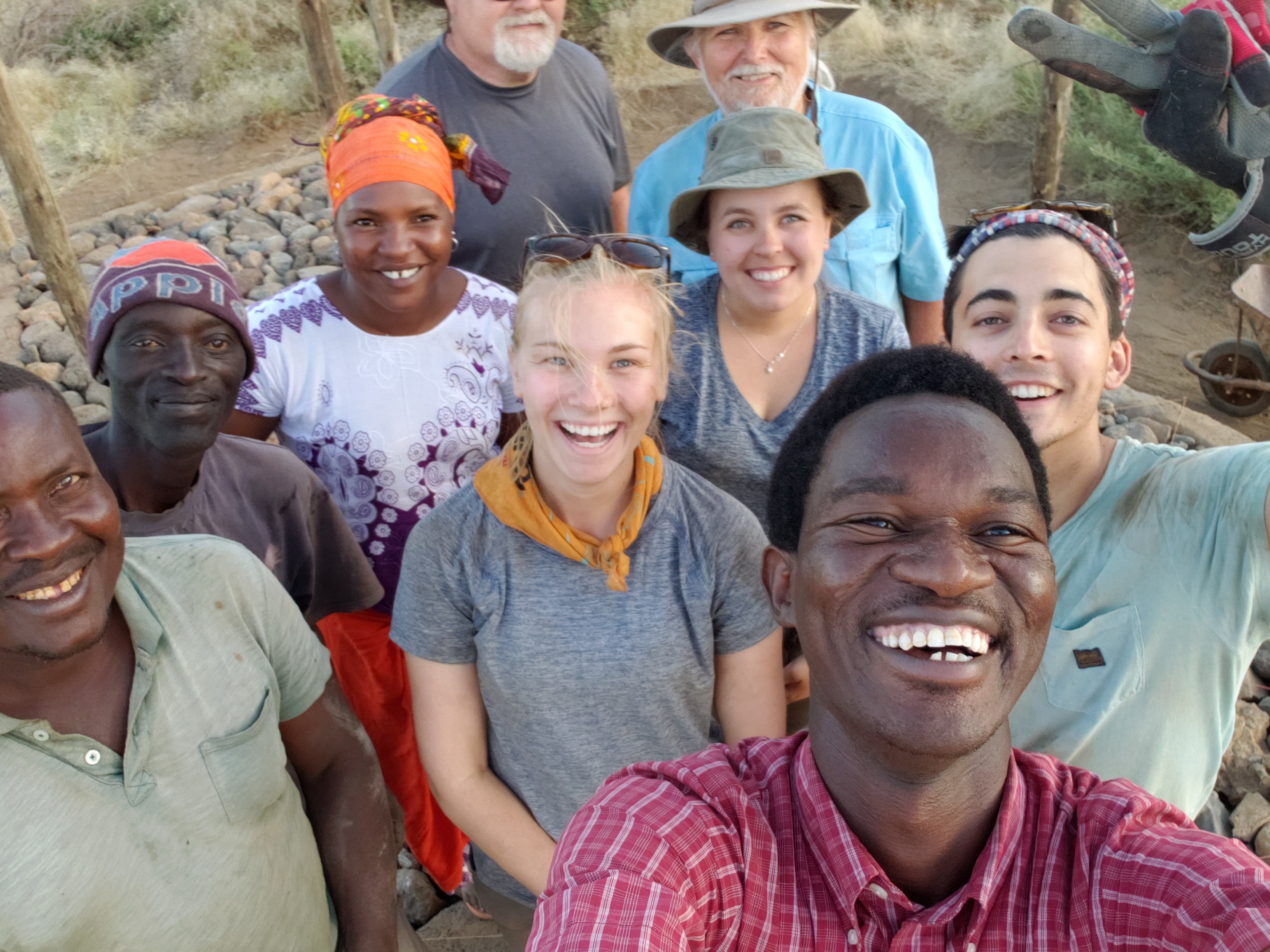From RSAP to Leading Service Projects in Tanzania

Caroline Bonnes is a rising senior majoring in Industrial Systems Engineering and co-leader of the Service Without Borders (SWB) project at the Engaruka English Medium Primary School in Tanzania. She returns to northern Tanzania this summer for almost two months, where she will volunteer with a local non-governmental organization and then lead this summer’s SWB project.
“I participated in RSAP the spring semester of my freshman year and heard about SWB when representatives visited class. That fall, I went to the first general meeting and joined the Tanzania project team because of the work it’s doing educating girls. Service Without Borders has been involved with the Engaruka School project since 2016. The group’s faculty advisors, Theo Dillaha and Brian Benham, went on a safari in 2016 and became educational sponsors of a young Maasai girl. They later met Martha Ole Misiko who ran a non-profit to empower women and help girls continue their education in the Arusha region and learned of her dream to start an English language-based primary school for Maasai youth. Shortly thereafter, SWB and Virginia Tech students adopted the Engaruka English Medium Primary School as a project.
For me, global engineering is about applying what I’ve learned as an engineer to make the world a more equitable place. I see a lot of projects at Virginia Tech that blow my mind, like AI and self-driving cars, but through SWB I see communities that don’t have a single primary school. How can I use what I’ve learned as an engineer to even the playing field? Not to make lives more convenient, but to bring the benefits of engineering everywhere, evening out the resources that we have. The SWB model of service-learning connects the humanities and engineering sides of Industrial Systems Engineering. As an engineer, you learn so many ways to solve a problem. But if you don’t know how to manage that skillset in human terms, it’s useless. You have to put on a project management hat. That’s the engineering side of SWB. But you also learn to lead alongside people with other kinds of skills. Nina, my co-leader, for example, is studying human development. Collaborating with her has taught me ways to communicate and work better alongside people from different disciplinary backgrounds."

"Doing humanitarian work appropriately is a struggle. It is an ongoing conversation. I follow the hashtag #NoWhiteSaviors on social media to keep myself educated—and to keep myself in check. Even in recent years, the work white people have done in Africa has not been as benevolent as perhaps people’s intentions were. For example, in my Medical History course I’ve learned how charities often donated old medical equipment that isn’t useful to countries in Africa. So I ask myself, what are the effects of what I’m doing? SWB tries to do this reflection. You can’t go on a hunt, say, “Where can I work in India?” Instead we ask our partners: “What do you want us to do?” When we travel in Tanzania we are at the direction of Martha and at the direction of local workers on site. It’s their project and we’re just there to help. That’s how we navigate our relationships.
It’s definitely important to not let awareness of the white savior complex paralyze efforts to level the playing field or get involved in international work. We must educate ourselves and understand how inequality has become such a problem. For example, not knowing what words to use: “developing countries” or “third world country” or “low income countries” has helped me to identify a bigger problem: why are some countries in a perpetual state of development? You have to address this at its root. Countries are being over-exploited for their resources. Learning about these issues is humbling, even though people sometimes might get into service because it feels good. You also have to allow yourself to be corrected and acknowledge criticism.
Educating girls in Tanzania to enter STEM careers is important to me and came out of building connections with these students. There are 25 girls boarding at Engaruka School, all with such amazing and distinct personalities. When I was painting the school last summer, the students were helping. I see so much potential, such gratitude for learning, so much happiness to be in school. I hated to go to school growing up. I have met students who are so much more mature and have more going for them and I want to give them an opportunity. In 2017, we built the first school building alongside construction workers. In 2018, SWB fundraised for solar panels to provide the school with electricity. This year, work has shifted to finishing the amenities required for the school’s accreditation including a playground, dining hall, classrooms, and a library.
ISE is organized around making systems more efficient. I know that I am interested in exploring applications of ISE outside of typical contexts, applying it in Service Without Borders or in medical settings. So while it’s been stressful deciding to not intern this summer, giving that up to commit to what I’m doing in Tanzania means pursuing a different avenue of opportunities. I think as engineers we sometimes forget that a successful career doesn’t have to follow a fixed pattern, “school-internship-school-internship.” To step outside your comfort zone means discovering new connections."




